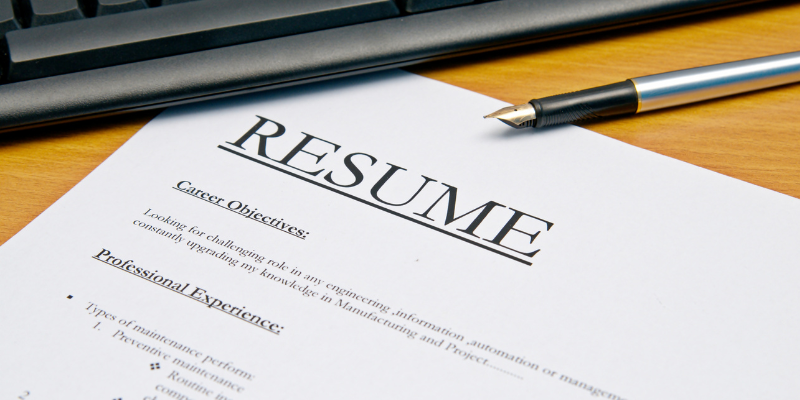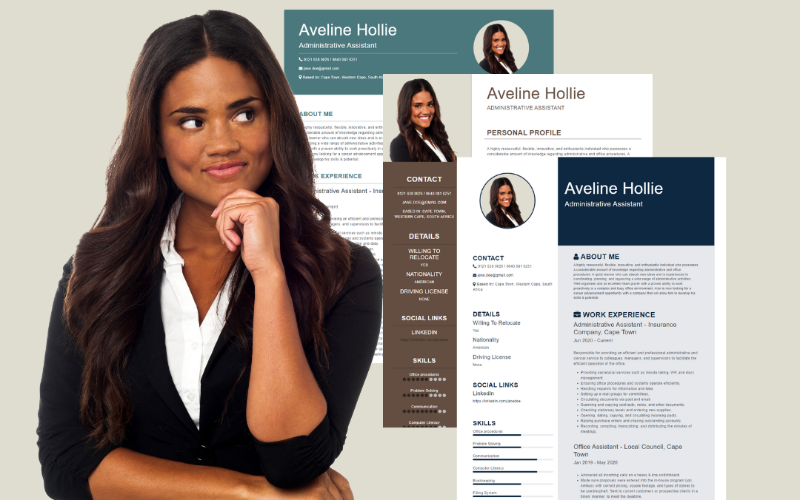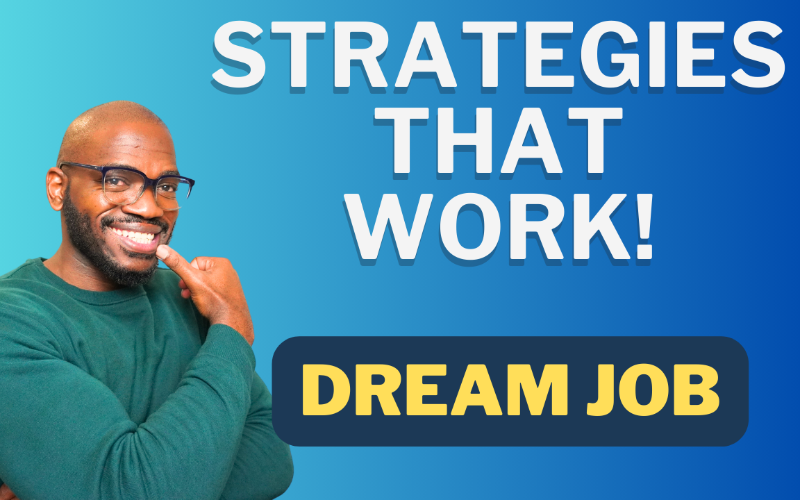Table of Contents
Introduction
The journey of a career change is often exciting but can also be daunting, especially when it comes to rewriting your resume. For career changers, a resume is not just a chronology of professional experiences; it's a strategic document that highlights the relevance of your past experience to your new career path. This blog post delves into the key considerations for crafting a resume that not only showcases your skills and experiences but also aligns them with your new industry, ensuring you make a lasting impression.

Understanding the Career Change Resume
What Makes a Career Change Resume Different?
Unlike a traditional resume, a career change resume must bridge the gap between where you've been and where you're going. It's tailored to highlight the skills and experiences that are transferable to the new industry or role you are targeting. This type of resume focuses more on your abilities and accomplishments that are relevant to the new field, rather than a linear progression of your professional history.
The Importance of Transferable Skills
Transferable skills are the cornerstone of a successful career change resume. These are skills you've acquired in your current and past roles that are valuable and applicable in many other industries. Examples include leadership, project management, communication, and problem-solving skills. The ability to identify and effectively present these skills can make your transition into a new career smoother and more achievable.

Assessing Your Transferable Skills
Identifying Your Transferable Skills
The first step in creating a compelling career change resume is to conduct a thorough assessment of your transferable skills. Reflect on your entire career journey – every role and project – and list out skills that could be valuable in your new industry. Consider soft skills like communication and adaptability, as well as hard skills like technical expertise or specific tool proficiencies.
How to Identify Transferable Skills:
-
Review past job descriptions and highlight common skills.
-
Think about feedback you've received that praised certain abilities.
-
Consider skills that have been pivotal in your career achievements.
Matching Skills to New Industries
Once you've identified your transferable skills, the next step is to match them to the needs of the industry or role you're targeting. Research job listings, industry news, and professional forums to understand what skills are in high demand. For example, if you’re moving from teaching to corporate training, skills like public speaking, curriculum development, and educational technology are highly relevant.
Research Methods for Skill Matching:
-
Analyze job postings in your target field.
-
Network with professionals in the industry for insights.
-
Read industry-related articles and reports to understand trending skills.
Structuring Your Resume for a Career Change
Effective Resume Formats for Career Changers
Choosing the right resume format is critical for career changers. A functional resume, which emphasizes skills and experiences rather than chronological work history, can be effective. Alternatively, a hybrid format, combining elements of both functional and chronological resumes, can showcase your relevant skills while providing context with your work history.
Resume Format Options:
-
Functional: Focus on skills and qualifications.
-
Hybrid: Blend of skills and chronological work history.
-
Chronological: Traditional format, less recommended for career changers.
Crafting a Compelling Professional Summary
Your professional summary is a prime opportunity to state your career change intention and highlight relevant skills. This section should be a concise pitch, demonstrating how your background has prepared you for this new path.
Elements of a Strong Professional Summary:
-
Clearly state your career transition goal.
-
Briefly mention key transferable skills and how they relate to the new role.
-
Include any relevant certifications or training.
Highlighting Relevant Experience and Skills
Showcasing Transferable Skills
In the experience section, rather than listing tasks from previous jobs, focus on achievements and responsibilities that demonstrate your transferable skills. Use bullet points to describe how these skills contributed to your success in past roles, and how they can be applied in the new industry.
Showcasing Skills in Experience Section:
-
Frame past experiences around relevant skills.
-
Use quantifiable achievements to demonstrate effectiveness.
-
Relate each point back to how it can apply in the new career context.
Demonstrating Adaptability and Learning
Employers value candidates who can adapt and learn quickly, especially career changers. Highlight any instances where you learned new skills, adapted to different environments, or embraced new challenges. This can include professional development courses, volunteer work, or self-taught skills.
Highlighting Adaptability and Learning:
-
Include courses or certifications relevant to your new career.
-
Mention self-driven learning initiatives.
-
Showcase adaptability in diverse work environments.

Addressing Career Gaps and Varied Experience
Handling Career Gaps in Your Resume
Career gaps can be a concern for many changing careers, but they don’t have to be a disadvantage. Address these gaps honestly and focus on how you used the time constructively – whether it was for further education, skill development, or personal growth.
Strategies for Career Gaps:
-
Be straightforward about the reason for career gaps.
-
Highlight any constructive activities during the gap, such as freelance projects, courses, or voluntary work.
-
Show how these experiences have prepared you for your new career path.
Leveraging Diverse Experience
A varied career path can be a rich source of skills and experiences. Emphasize how this diversity has given you a unique perspective and a diverse skill set that can be an asset in your new role.
Utilizing Diverse Experience:
-
Connect past roles and experiences to the skills needed in your new career.
-
Showcase your flexibility and ability to adapt to different roles and industries.
-
Highlight any cross-industry skills you've gained.
For a comprehensive guide on how to approach career gaps, see How to Overcome Employment Gaps in Your Resume
Tailoring Your Resume to Specific Roles
Customizing Your Resume for Different Job Applications
One size does not fit all when it comes to resumes for career changers. Tailor your resume for each application based on the job description and required skills. This shows employers that you have not only the relevant skills but also a genuine interest in the role.
Tips for Customizing Your Resume:
-
Use the job description as a guide to highlight relevant skills and experiences.
-
Change the professional summary to align with each specific role.
-
Include keywords from the job posting to pass Applicant Tracking Systems (ATS).
Researching Industry Keywords
Incorporate industry-specific keywords into your resume. This is crucial for passing ATS scans and for demonstrating your familiarity with the new industry's language. Research job listings, industry forums, and professional networks to identify these keywords.
Keyword Incorporation Tips:
-
Use job listings as a guide for relevant keywords.
-
Include industry jargon and technical terms where appropriate.
-
Balance the use of keywords with natural language to maintain readability.

Additional Resume Tips for Career Changers
Education, Certifications, and Training
Include any education or certifications that support your move to a new career. Even courses or certifications that are in progress can be valuable, as they show your commitment to the new field.
What to Include:
-
Relevant academic degrees or certifications.
-
Ongoing training or coursework related to the new industry.
-
Professional development workshops or seminars.
The Role of Cover Letters
A cover letter is a valuable tool for career changers. It gives you the opportunity to explain your career transition in more detail and to tell a compelling story about why you are pursuing this new path.
Cover Letter Strategies:
-
Clearly explain your career change and the reasons behind it.
-
Elaborate on your transferable skills and how they apply to the new role.
-
Demonstrate your enthusiasm and commitment to the new career.
To craft an impressive cover letter that will blow away your potential employers, see How to Write a Compelling Cover Letter: A Comprehensive Guide

Common Mistakes to Avoid in Career Change Resumes
Resume Pitfalls for Career Changers
Crafting a resume as a career changer presents unique challenges, and avoiding certain pitfalls can significantly improve your chances of success.
Key Mistakes to Avoid:
-
Ignoring Transferable Skills: Failing to highlight skills applicable to the new industry.
-
Listing Irrelevant Experience: Including every job you’ve had, regardless of relevance.
-
Overlooking the Format: Using a traditional chronological format that doesn't showcase your applicable skills.
-
Neglecting Customization: Sending the same resume for every job application without tailoring it.
Conclusion
Transitioning to a new career is an opportunity for growth and exploration. A well-crafted resume is your ally in this journey, serving as a bridge between your past experiences and future aspirations. By strategically highlighting your transferable skills, tailoring your resume to each application, and effectively communicating your career narrative, you can make a compelling case for your candidacy in a new field. Remember, your resume is more than a document – it's a testament to your adaptability and dedication to continuous learning and professional development.
FAQs
Frequently Asked Questions About Career Change Resumes
-
How long should my career change resume be?
-
Aim for a one to two-page resume, focusing on relevance and impact rather than length.
-
-
Can I include personal projects in my career change resume?
-
Absolutely, especially if they demonstrate skills relevant to your new career.
-
-
How can I transition to a completely different industry with my resume?
-
Focus on transferable skills, adaptability, and any relevant training or education.
-
-
Should I explain my career change in my resume?
-
Your resume should hint at it, but detailed explanations are better suited for your cover letter.
-
-
How do I handle a lack of experience in the new field on my resume?
-
Highlight transferable skills, and consider including volunteer work, internships, or relevant personal projects.
-









